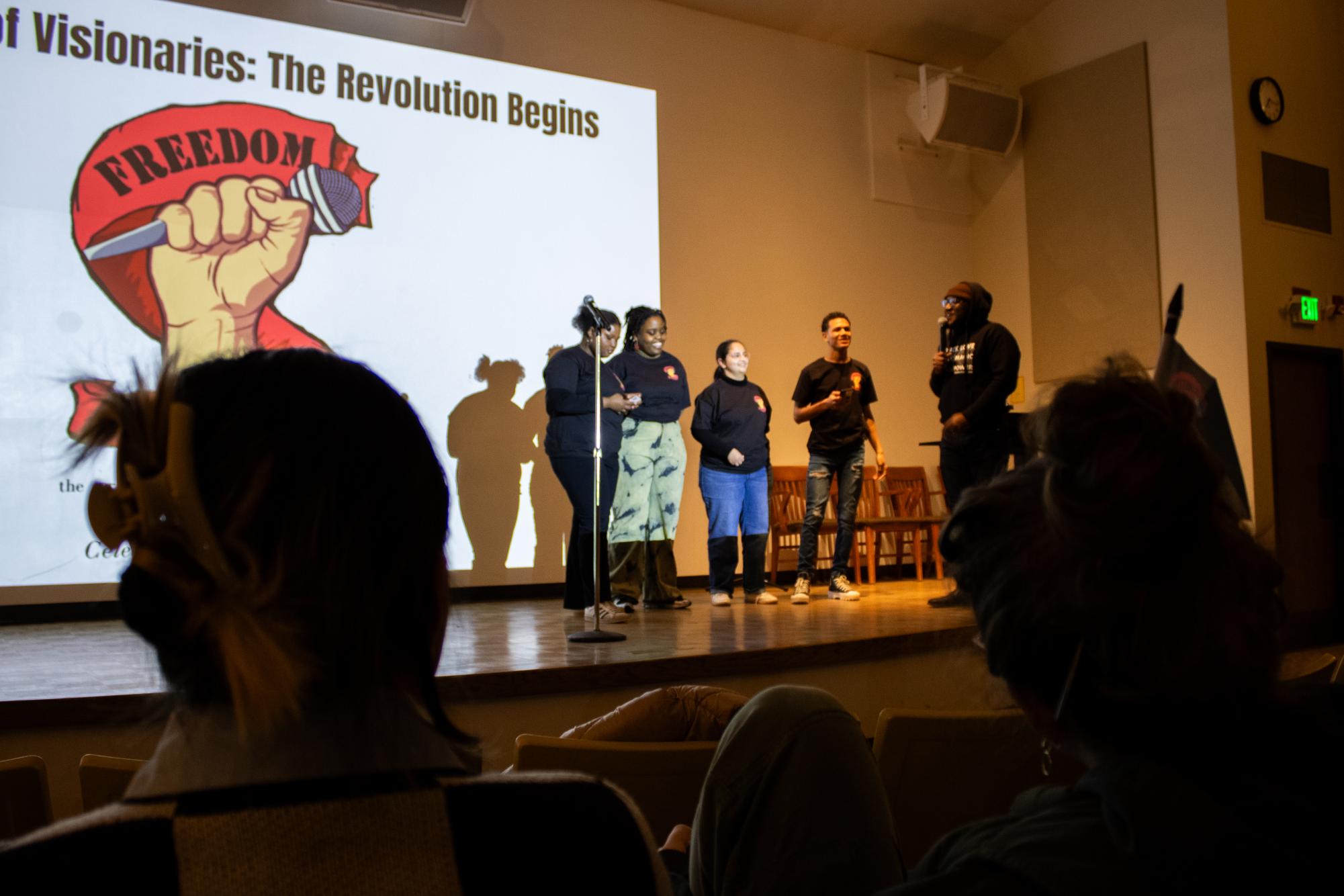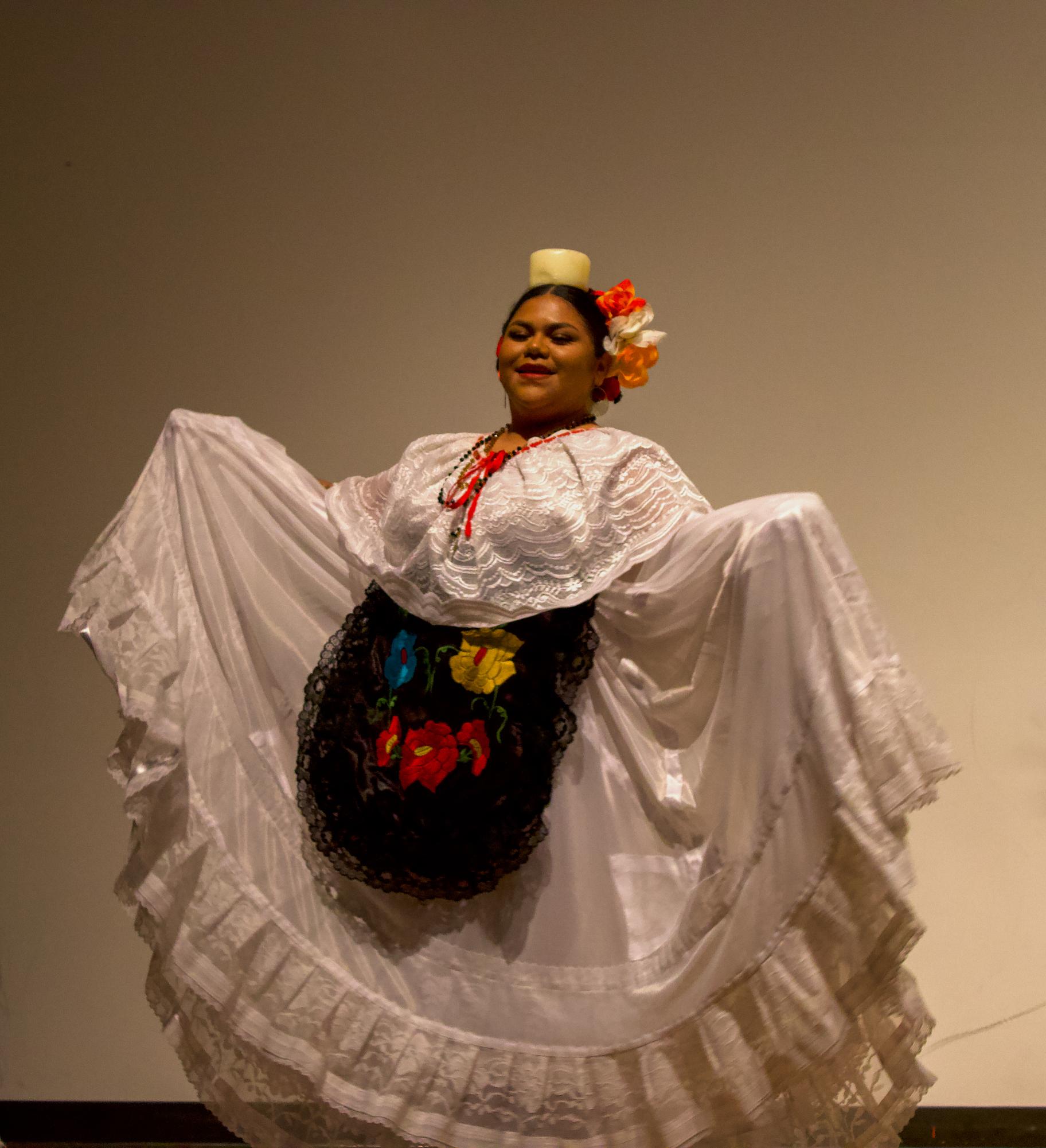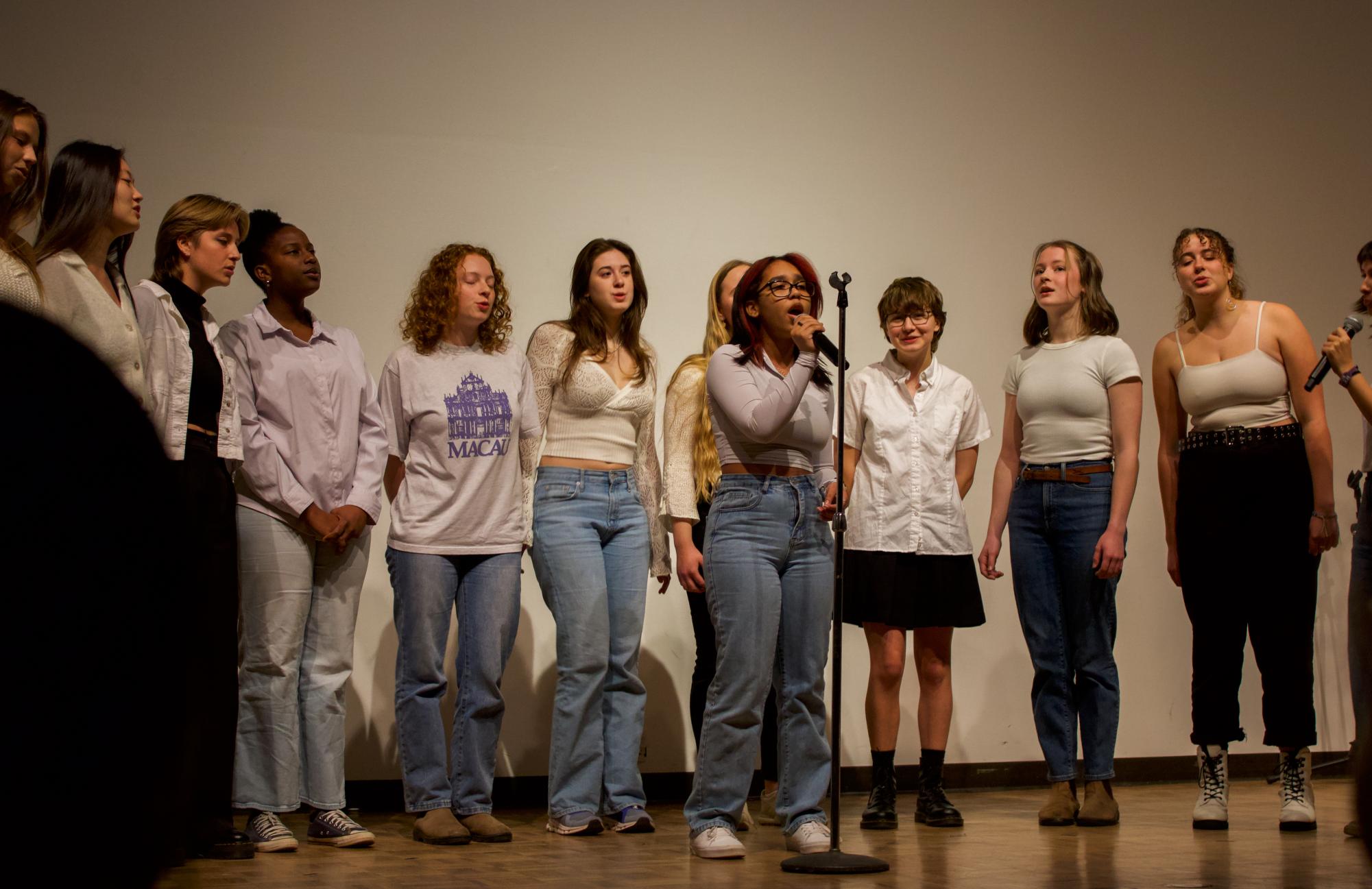
On Nov. 30th, students had a momentary distraction from the business of preparation for finals when the 7th annual Freedom Songs was held in Maxey Auditorium. The event was a testament to the power of performance and collective action, igniting meaningful conversations about social justice and political change.
The student organizers behind Freedom Songs sought to provide a platform for voices that are often marginalized or silenced. By incorporating a variety of perspectives and artistic styles, including dance, song, poetry and film, the event was entertaining, moving, relatable and thought-provoking.
Along with the performances, the Freedom Songs team also creates a zine featuring the Whitman community’s additions that aims to add another perspective and shed light on the theme. This year’s Zine editor-in-chief, first-year Samaiya Kemp, wanted this year’s zine to be an open space for a diversity of perspectives.
“I really wanted to have multiple different voices and perspectives on what Freedom means to them,” Kemp said. “There’s a lot of ideas on campus that I do not have the credibility to speak on, so I wanted to have people have the opportunity to speak out themselves.”
This year’s theme, “Voices of Visionaries: The Revolution Begins,” focuses on identity-based struggles, the impact of current generations and their hopes for sustainable, long-lasting change.
“The theme came up due to recent political developments, we noticed how a lot of the student body was openly discussing things and striving for political change on campus,” Kemp said. “That’s why we focused on the concept of revolution.”

While a theme was introduced as an inspiration for performances and original creations, students could submit in any medium and cover any topic they chose. Kemp believes this freedom of expression is a way for audiences to gain a better understanding of ideas that are prevalent on campus.
“I think students can see people performing and having a new idea on what others think and what people want to communicate to a general student body,” Kemp said, “And performers have that power to decide what they hope to share and how they want to present it.”
Freedom Songs, first organized in 2016, primarily focused on racial justice and systemic prejudice based on race. This year, the organizers attempted to broaden the themes covered in the zine and at the event as a way to create a more diverse discourse.
“We wanted people to have an outlet to talk about or present any idea they wanted to and [any idea they] were passionate about. This way, everyone can take something out of being present,” Kemp said.
While the event has taken many shapes and forms throughout the years, its main focus remains on concepts and implications of freedom. For Kemp, this is crucial to keep in mind on an individual level and on the level of collegiate discourse.
“Freedom is something that we as young people need to know about in order to develop and move forward as a community,” Kemp said. “Being aware of current events is not enough without a clear understanding of what we are working towards.”
Freedom Songs stands as a testament to the power and influence of student-led initiatives on campus. The event managed to bring together creative expression and explore honest and revolutionary ideas on a communal level.

